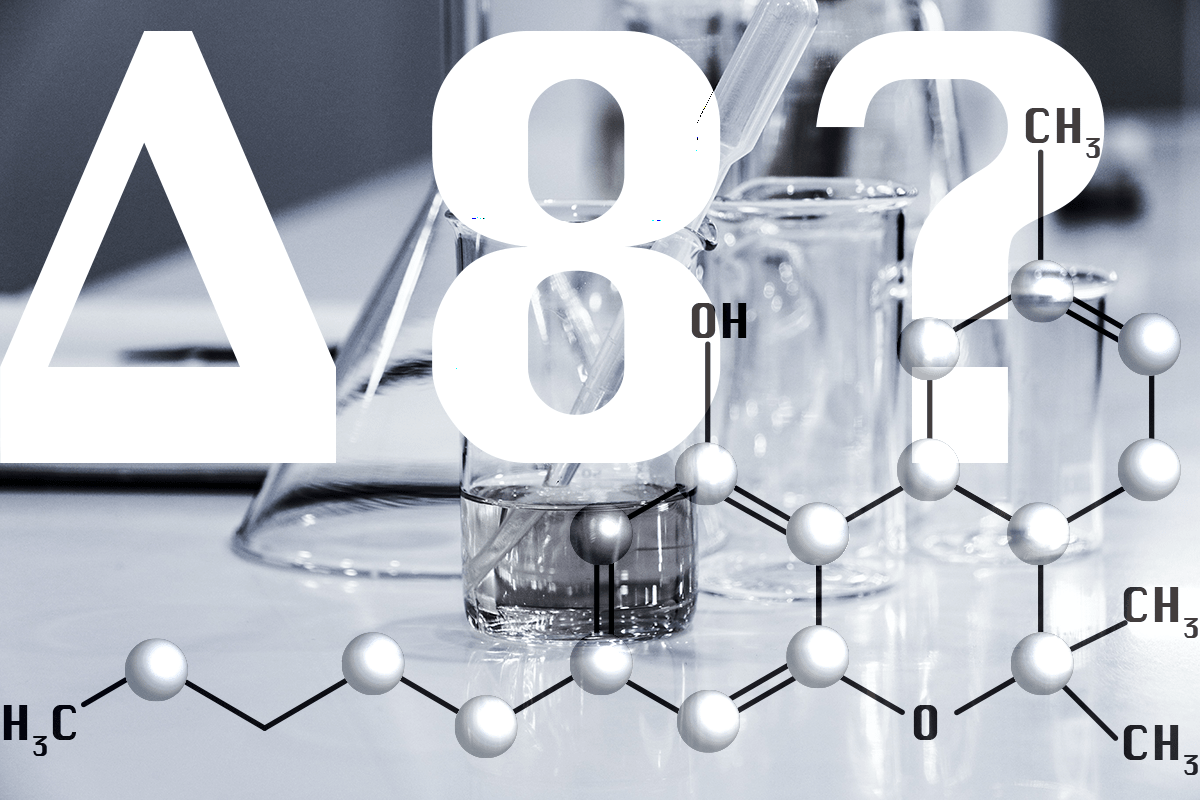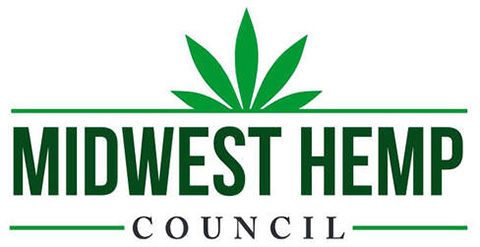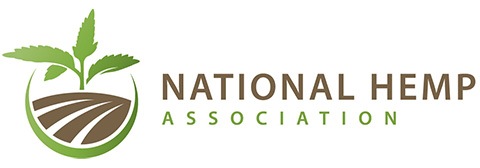
Is Delta-8 THC the “next big thing” for cannabinoids and the hemp industry, or just the latest, passing trend in a business sector that has seen more than its fair share of hemp-related hype? A September Hemp Market Insider article asked the same question, in addition to discussing delta-8 THC’s uncertain legal status and what a market for such products might look like.
While a definitive answer remains elusive, the production and distribution of delta-8 THC products has continued and expanded, with some market participants reporting that such products are now accounting for a significant portion of their sales. Furthermore, Hemp Benchmarks has now gathered six months of wholesale transaction data for delta-8 THC distillate, which we discuss below.
Before laying out new developments related to delta-8 THC, a brief summary explaining the cannabinoid and its legal status may be helpful.
What is Delta-8 THC and Is it Legal?
The minor chemical difference between the two types of THC results in varying psychoactive effects. The National Cancer Institute, the U.S. government’s principal agency for cancer research, says delta-8 THC “exhibits a lower psychotropic potency” than delta-9 THC. Anecdotally, users report that delta-8 THC creates a more clear-headed “high” than delta-9, with the experience also characterized by less anxiety or edginess.
Perhaps the most important difference between delta-8 and delta-9 THC for legal purposes is that the former is not actually found in cannabis plants in significant amounts. “To the best of my knowledge there are no plant phenotypes out there that directly produce delta-8,” Kris Schneider, Operations Manager and part owner of Colorado-based Biomass Isolations, a bulk extraction company, told Hemp Benchmarks. As such, essentially all delta-8 THC on the market today is manufactured from hemp-derived CBD.

This is important as one of the prevailing theories amongst attorneys working in the hemp industry is that if delta-8 THC were derived directly from hemp plant material, then it would be a federally-permitted substance under the 2018 Farm Bill, which legalized hemp and its derivatives nationally. However, as we noted in previous reports, an Interim Final Rule (IFR) released last year by the Drug Enforcement Administration (DEA) proposed that all “synthetically derived tetrahydrocannabinols remain schedule I controlled substances.”
The DEA IFR has not yet been approved or implemented; it has also been subject to legal action from hemp market participants over provisions unrelated to delta-8 THC. Overall, whether delta-8 THC manufactured from hemp-derived CBD is legal, or will be legal ultimately, is a matter of contention that may require additional legislation from Congress or rulemaking from federal agencies to be settled definitively. At this point, though, there have been no reports of federal authorities carrying out enforcement actions against businesses or individuals for producing, distributing, marketing, or possessing delta-8 THC.
Delta-8 THC Sales Are Up
Lack of enforcement combined with consumer interest has resulted in the proliferation of delta-8 THC and associated products nationwide. In less than a year, sales of delta-8 THC have reportedly jumped dramatically in some parts of the country. The compound is sold in various forms, including edibles and beverages, vape cartridges, tinctures, and other products, such as smokable hemp flower infused with delta-8 THC distillate.
Adam Rahman, CEO of Nevada-based Fresh Bros, a licensed CBD and hemp product manufacturer, told Hemp Benchmarks that the company’s delta-8 THC sales began to rise in mid-2020 and that they currently make up a majority of his firm’s overall sales. “The CBD sales have definitely gone down over the past couple of years,” he said. “I believe that CBD has become more of a common ingredient, while minor, more rare and harder-to-process cannabinoids hold more value, because of what it takes to derive them.”
Keep up on Delta-8 THC sales and legal developments, as well as monthly pricing updates on 21 specific product categories by subscribing to our monthly Hemp Spot Price Index Report.
Questionable Legality Curtails Potential Market
While Rahman and some other members of Hemp Benchmarks’ Price Contributor Network (PCN) have reported that delta-8 THC and products containing it are now accounting for significant portions of their sales, it must be noted that observed transaction frequency for wholesale delta-8 THC distillate remains a small percentage of the amount of transactions for wholesale CBD extracts documented by our firm.
Delta-8 THC’s uncertain legal status has caused even some hemp-cannabinoid companies to shy away from producing and selling the compound, according to statements from our PCN. Additionally, to the knowledge of our analysts, no established, traditional corporations have yet shown interest in delta-8 THC in the way that some major consumer packaged goods, alcohol, and other companies have with CBD.
Along the same lines, national pharmacy and grocery chains that carry CBD products have not begun carrying delta-8 THC products. Based on our observations, sales of delta-8 THC appear to occur via two primary channels: online, direct-to-consumer sales, as well as through small, independent retailers, primarily shops selling smoking and vaping products and accessories.
Delta-8 THC Prices and Impacts on the Hemp-CBD Supply Chain
Despite growing demand for delta-8 THC, transaction data reported by Hemp Benchmarks’ PCN has shown a steady decline in prices for delta-8 THC distillate in the six months in which we have been collecting such data, from August 2020 through January 2021. In that period, the high-end prices for a kilogram of delta-8 THC distillate have been observed to drop by almost half. Between October 2020 and January 2021, average per-kilogram prices for delta-8 THC sank by 36%. Detailed price data can be found in our monthly Hemp Spot Price Index Reports.
A simple reason for declining prices in the face of apparently fast-growing demand is that – given the glut of extracted CBD on the market – the supply of precursor material used to make delta-8 THC is plentiful. The fact that delta-8 THC is manufactured from CBD has also created new dynamics in the wholesale side of the hemp-CBD market. Multiple members of our PCN have stated that demand for extracted CBD has increased specifically due to demand for delta-8 THC.
In some cases, those market participants have said that this demand has stabilized and even lifted prices for extracted forms of CBD in their dealings. However, in our January Spot Price Index Report, aggregated transaction data still showed across-the-board declines in assessed prices for all types of CBD extracts, indicating that demand for delta-8 THC is at this point not sufficient to put a dent in the sizable inventories of extracted CBD that exist currently and lift prices overall.
What Does the Future Hold for Delta-8 THC?
As indicated earlier, how federal and state authorities decide to classify and regulate delta-8 THC will ultimately determine whether the compound will be a viable legal product. Based on comments from our PCN in recent months, many of those participating in the production and marketing of delta-8 THC are relatively clear-eyed about the eventual possibility of government intervention and are trying to take advantage of the current opening while it exists.
Adam Rahman of Fresh Bros told Hemp Benchmarks that the legality of delta-8 THC is “definitely a talking topic” in the hemp industry. However, he added, the industry is adept at adapting to the constantly-evolving cannabis regulatory landscape. “We’re going by the law,” he said, “and if the law changes, the law changes. But right now, according to the Farm Bill and the way it’s written, delta-8 is an isomer of CBD derived from hemp.”



